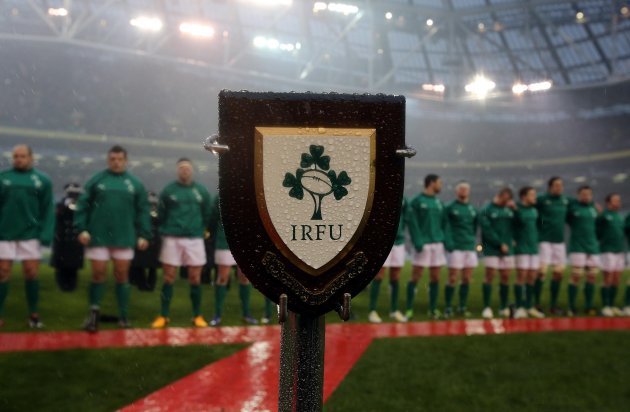PROFESSIONALISM IN RUGBY has spread like wildfire, even among the players who aren’t actually professional.
Young schools and clubs players are approaching their training with exemplary diligence, paying great attention to their skills, strength & conditioning, mental preparation and diet. The latter element can include the use of sports supplements, something the IRFU is keen to spread education on.
This is not another article written with the aim of fear-mongering. The objective instead is to highlight the case being put forward by the Irish governing body, with Performance Nutritionist Ruth Wood-Martin speaking on their behalf.
The IRFU this week advised players under the age of 18 not to use sports supplements, saying they may be “risking their health” by doing so. Wood-Martin claims that the risk of using protein, creatine and pre-workout energy products is that we simply don’t know the effects they can have on young people’s bodies.
“The key thing here is that the research that has been carried out in young people, anybody under 18 years of age, is really very scarce. The key thing is that by young people taking a lot of these supplements, we simply don’t know whether there is a health risk.
It’s the unknown, and given that we are the governing body of rugby we have a duty of care to follow best practice across the world, which has been cited by recognised bodies such as the American academy of pediatrics and the American College of Sports Medicine.”
Beyond those potential hazardous effects on young people’s bodies, the IRFU are concerned by the prevalence of online shopping for supplements. That means less regulation and a greater chance of young players testing positive in anti-doping tests.
“Food supplements in Ireland come under the governance of the Food Safety Authority of Ireland, and sports supplements are classified as foods, they’re not classified as medicines,” Wood-Martin told TheScore.ie. “The FSAI has a programme of control and that’s robust.”
“However, one of the big concerns that we would have is that a lot of what people buy now is across the internet and there’s very little control and regulation of that. As we know, most young people will buy things across the internet and we can’t stand over what’s in those products from a point of view of manufacture or contamination.
“That’s a worry, that something like that may contain a substance that could now result in them having a positive doping outcome.”
The IRFU are keen to point out that the professionals are very different young players. ©INPHO/Dan Sheridan.
Sports supplementation plays an important role in the diet of professional players, the guys who Ireland’s youngsters look up to. Wood-Martin agrees that there is certainly a degree of copy-cat behaviour involved. If the top international are supplementing, the youth players will want to do the same.
However, the IRFU nutritionist stresses that there is a contrast between the groups.
“They really are two very different groups of athletes. That’s part of our education programme, backing up this information that is being re-circulated out to schools given that it’s the start of the school year.
“We will be educating young players and their parents as to why they actually are different, a very different group to an elite athlete, who’s in a very different structured and managed programme, from the nutrition angle, medical angle, strength and conditioning angle.
Therefore, there can be close monitoring of the use of appropriate sports supplements in that adult age group.”
That re-education process is what the IRFU are now focusing on with regards to sports supplementation. Wood-Martin points out that these products can be replaced be real food in young players’ diets, allowing them to make the strength and conditioning gains they are aiming for.
“They’re young people, they’re growing fast. They’re putting in a lot of hours training, maybe in a number of different sports. So you have to look at what their calorie or energy requirements are and, in general, they’d be high.
“The key message is eating and drinking to suit what their actual needs are. A lot of the supplements out there contain protein, carbohydrates, fats or whatever. There’s no reason why that can’t be done, certainly in this young group, through a ‘food first’ approach.
“To that end, we have already developed a group of fact sheets that are available on our website under the banner of ‘Eat 2 Compete’. With these fact sheets, around 10 or 12 of them on the IRFU website, we go through just those type of things.
“How to get the eating and drinking right in terms of the main nutrients, the match-day, in terms of recovery fluids and how they can do it through food means. We’ll be using that as our starting platform for further developing the education programmes in schools and clubs.”


